Having been born into the “Musahar” community in Bihar, India, Kunti Devi has spent much of her life defined by others solely by her caste.
In India, the caste system is a form of social classification rooted in notions of human purity and pollution, in which individuals in the Hindu community are divided into “upper castes” and “lower castes” based on their occupation, which is determined by their lineage.
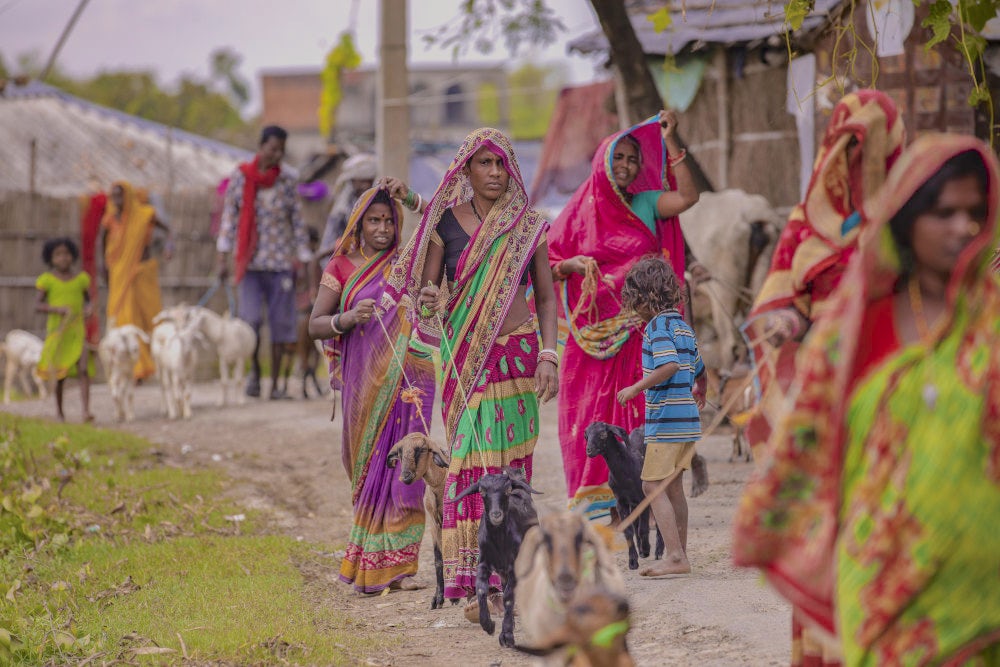
As a Musahar, Kunti and her community fall at the bottom of the caste system; the Hindi word musahar means “rat eater” in English.
“We belong to a community which has never seen respect in the society. We were not allowed to sit with the upper castes,” said Kunti. “They would even refrain from talking to us.”
Although prohibited by law, the practice of caste continues to influence one’s position in the social hierarchy and whether they have access to opportunities. Considered “untouchable” and impure by birth, the Musahar community, especially, has suffered centuries of discrimination, oppression and inequality manifesting in a lack of access to education, employment and social representation.
But, supported by Heifer with opportunities to engage with her peers, explore her potential and rise above prejudice, Kunti is now evolving her identity, shedding limitations imposed on her on by the caste hierarchy — and becoming more.
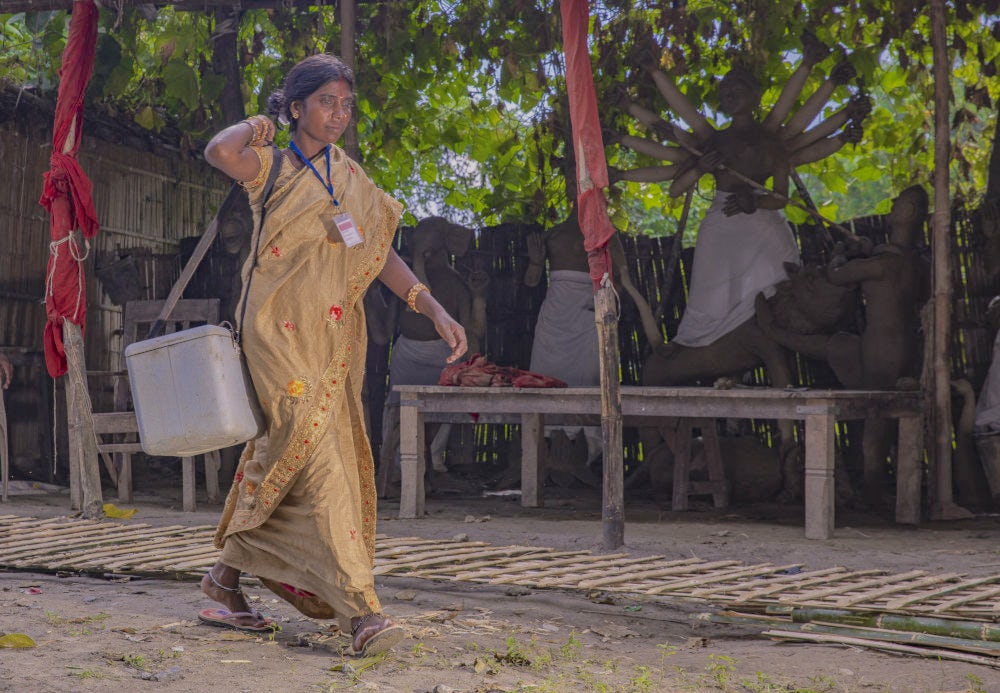
With limited resources and education — literacy among Musahar women is a crippling 1-2% — most people in the community, including Kunti, rely on farming land and animals to sustain themselves. But almost none of them own the land they work. Nearly 96% of Musahars are landless farmers, making it challenging for them to earn a living and fueling a cycle of deprivation.
Of the 2 acres of land Kunti cultivates, she owns only a small fraction of it. “The rest of the land I till belongs to the landowner with whom I share the produce," explained Kunti, adding that her husband has often been forced to supplement their income as a day laborer loading vehicles or working at construction sites in the city. “With that income, we weren’t able to get enough food for all.”
Additionally, due to a lack of knowledge and access to markets, raising livestock seldom becomes a major source of income for Musahar families even though they often rear animals for years.
“Goat rearing has always been there in our family, but we were reluctant to put money in it,” Kunti said. “We didn’t know how to keep them, what to feed them. … They would die quite often. When we needed money, we sold them for whatever the buyer offered.”
Through a Heifer India project to promote goat farming among smallholder farmers in India’s Bihar state, Kunti got a chance to ramp up her knowledge — and she stepped up to the opportunity, joining a project group and enrolling herself in training to become a community agroveterinary entrepreneur (CAVE), or local animal health service provider.
“I thought if I am already rearing goats, then why not learn how to rear them better and treat them as well,” she shared. “I decided to learn. I felt I could do it.”
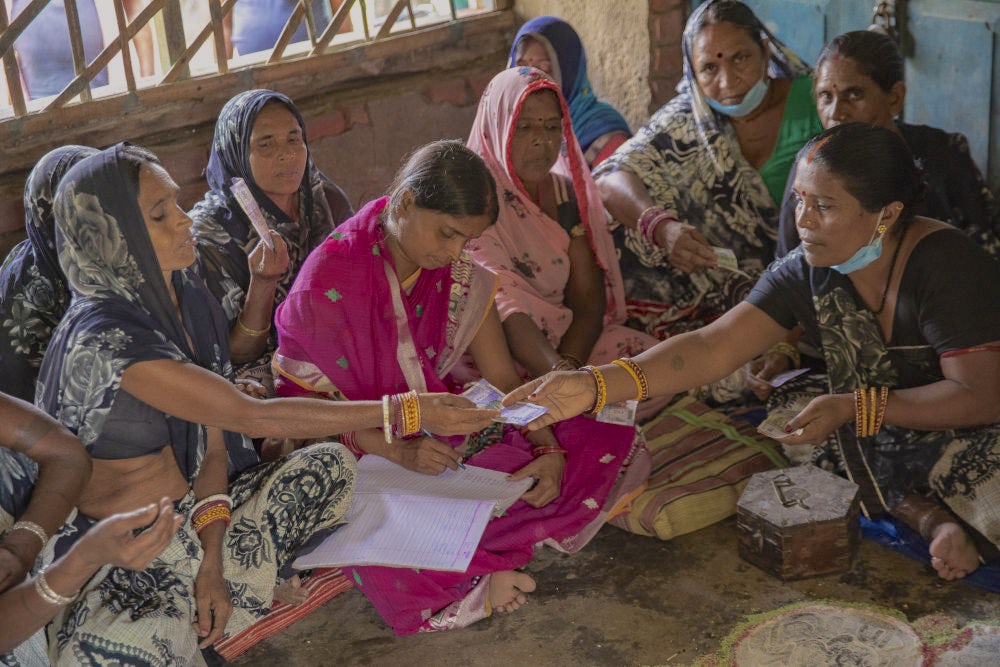
Through the project, Kunti and other women from the neighborhood would come together in a self-help group, a small group of women collectively working toward similar goals of improving income and livelihood opportunities, to learn about savings and loans, business management and animal management. But most importantly, they would sit together and discuss ideas of transforming their small-scale goat businesses to a collective enterprise.
Bringing members of different social groups together to reflect on their beliefs through dialogue and training, and passing the vision of growth to them, is foundational to Heifer’s work building social capital in vulnerable communities. Social capital, a strong network of social relationships that enables trust among community members, strengthens their ability to unite toward a shared goal.
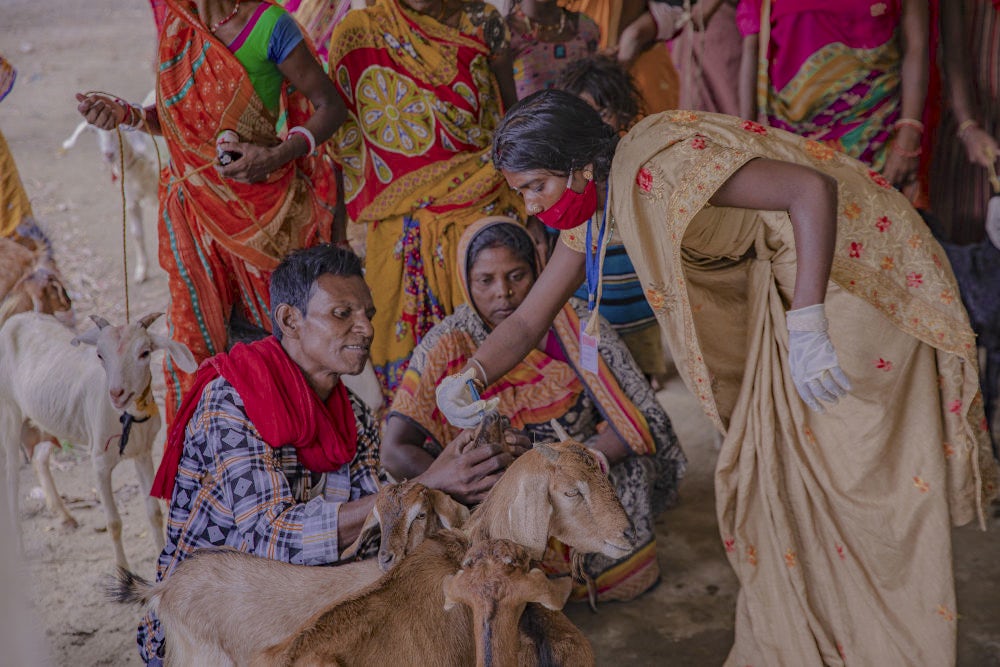
“We sat together and planned together. This [model] has had big impact on us. Through these meetings and trainings, we learnt we have to unite to move forward,” shared Kunti.
Since the women joined forces, they started Kamla Farmer Producer Company, Bihar’s first agricultural cooperative led by women. The cooperative now has nearly 7,000 female farmers and is led by 10 directors representing different castes and tribes, including Kunti.
In addition to achieving a director role in the company, Kunti has added new sources of revenue for her family as she has expanded her goat business and started providing animal health services in the community.
“I have many sources of money. First is my goat business, and then I earn from my work as a CAVE. … And I sell goats through the company, which brings additional income,” Kunti shared.
“I am earning well, I am eating well, and I am able to afford private tuition classes for both my children.”
.jpg?or=0&q=60&crop=faces,entropy&auto=format&fm=jpeg&shad=50&vib=20&duotone-alpha=40&duotone=000000,2CFFD4C6&w=1000)
Knit together in the cooperative by values of trust, dignity, vision and self-confidence, women like Kunti have found the power that caste and divisions could not endow earlier: the power of collective.
“Nobody knew us earlier. Nobody knew what we could do,” Kunti shared. “Today, everyone knows our women groups are spread across villages and we … strongly stand for each other. Our unity has given us power.”
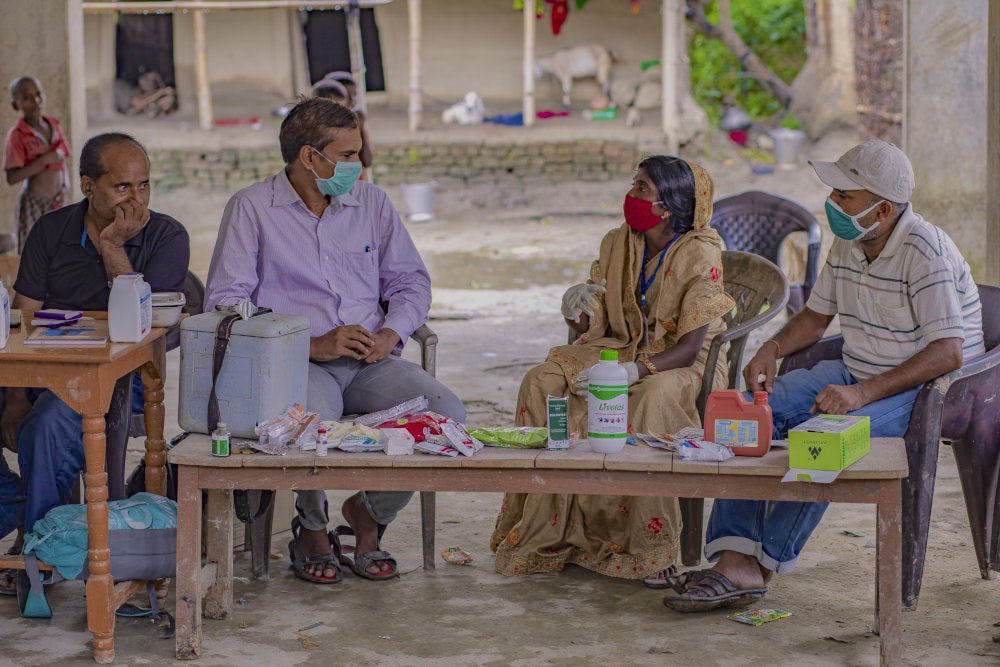
“Together, we have gained the power to choose the right leader for us, one who will support us in moving forward,” Kunti said. “Now, we don’t vote according to what we are told, we chose our representatives.”
Now known for their strong network and influence in the community, Kunti and others are often approached for consultation on public matters, such as infrastructure needs in the village or appropriate candidates to vote for during elections.
“I am a part of an SHG [self-help group] and the company [cooperative], I am a CAVE and a director. I am known for [my] name and my work more than my caste,” she shared. Rising up against discrimination and fighting against a legacy of challenges, Kunti now inspires women in her community to believe in their potential and take pride in their identities.
“People who used to avoid talking to me now consult me. [Those] who used to hesitate to sit with me, now bring me a seat when I visit them.”